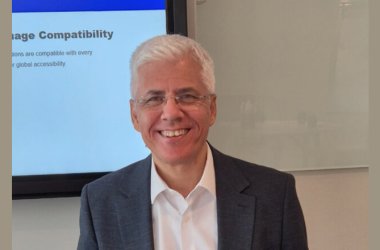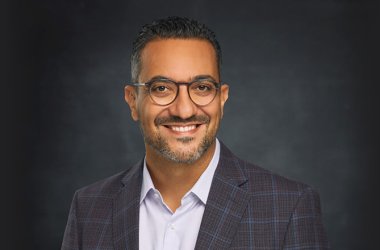
Hani Khalaf, Business Development Manager, Internet of Things & Digital Cities, Dell Technologies, Middle East, Turkey, and Africa (META) discusses how the Internet of Things is shaping the future of business.
How can customers derive business value out of Internet of Things (IoT)? What kind of approaches do they need to adopt and implement within the organization to achieve this?
Internet of Things is a concept, not a “Thing” and it’s a tool in the Digital Transformation of businesses. We see the business value that customers can derive from IoT fall within four categories – Operational Efficiency (e.g. reducing the fuel cost of the fleet by 10%), Customer and Workforce Experience (e.g. personalization of the shopping experience), Risk Mitigation (e.g. advanced computer vision on video surveillance cameras) and New Revenue models (e.g. all the new As-a-Service (aaS) business models). A strong commitment from top management for Digital Transformation is necessary. We advise customers to look at the Business Value derived from the IoT solution i.e. there has to be a Business Case to start with. The ROI has to be reasonable and it differs by vertical – e.g. in Energy Management and Optimization, we’re seeing that a payback period of 3 to 5 years is acceptable. Our approach as Dell Technologies is to help customers derive value from the Edge to the Core to the Cloud.
Can you elaborate on the market potential of IoT in the region?
As many of our customers have embarked on their Digital Transformation journey, there is a huge interest in IoT, but IoT in the region is still in its infancy. It varies by country and vertical. For example, fleet management solutions in the UAE have become mainstream, where as we see big potential for the technology in Saudi Arabia. Because of the rising costs of Energy in the region, we’re seeing lots of interest in Energy Management and Optimization solutions, whether on a single building level, district and cities. Many cities in the region have started pilot IoT projects as part of their Smart City initiatives.
Are regional customers leveraging data to transform the way they do business?
Yes, we see many customers realize that “Data is the new Oil” and have embarked on projects to utilize their data to gain insights into the business. Big Data, Data Lakes and Data Science topics are on many customers’ minds and is essential when talking about IoT; IoT is an essential data source that customers can use to enrich data analysis. We expect this interest to spike in the next few years as technologies such as machine learning, and deep learning become widely adopted.
What are the challenges that they have to first address before truly realizing the potential of IoT and data?
The biggest challenge we see is the ‘Business Case’, i.e. having a validated business case for the IoT project, and this is an area we – Dell Technologies – can help with. We work with customers to analyze current business challenges, available IoT technologies and possible solutions. Other challenges we see are related to interoperability, security and manageability, where we can also offer solutions through Dell Technologies to reduce risk for IoT projects. When it comes to data, the biggest challenge we see is the availability of data and more specifically “clean data”. Again, Dell Technologies is very well positioned to help customers with the data collection, cleanup and analysis.
How crucial is edge computing for the future of businesses?
Edge Computing is extremely important, especially for IoT. The traditional model of (client to Data Center) is not efficient in the IoT world. As IoT sensors and “things” generate lots of data, it’s neither efficient nor cost effective to transfer all this data to a data center. There is a need for an Edge Compute node near the data sources to read, interpret and analyze data before sending “useful data” only to a central location. Fast decision making at the Edge is another reason Edge Compute is the suitable model for IoT.
As there is increasing adoption for Artificial Intelligence (AI) in the market, we also see Edge becoming more important as the AI models will be running more and more on the Edge.
Can you discuss the growth of Dell Technologies IoT solutions division?
Dell Technologies announced in October 2017 the creation of the IoT Solutions division, with a $1B investment through 2020. We’re leveraging a centralized strategy to tap into the broad capabilities of all seven independent, yet strategically aligned businesses in the Dell Technologies family – Dell, Dell EMC, Pivotal, RSA, SecureWorks, Virtustream, and VMware.
We are also continuing the evolution of our IoT Solutions Partner Program to help us qualify best-in-breed partners for different IoT use cases, as well as services from systems integration to deployment.
As a result, we have today a wide portfolio of IoT use cases – globally, in Transportation, Energy Management, Advanced Video Surveillance, Healthcare, Digital Cities and others. We continue to evolve the blueprints we create with our partners to ease the customer’s journey into the IoT World.





